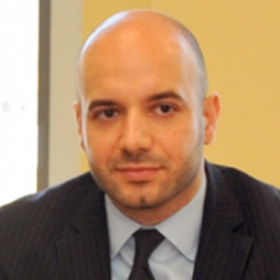
Reform - not Revolt - in Iran
Hooman Majd, author of the New York Times bestseller The Ayatollah Begs to Differ, visited EWI to discuss his latest book, The Ayatollah’s Democracy, and share insights about the wave of uprisings sweeping the Middle East.
Majd is both an insider and outsider to the intricate political world of the Islamic Republic of Iran. The son of an Iranian diplomat under the Shah and grandson of a powerful ayatollah, Majd grew up mainly in the United States. Although he was openly linked with the reformists and translated for former Iranian President Mohammed Khatami (a relative by marriage), Majd also translated Iranian President Mahmoud Ahmadinejad's infamous 2006 United Nations speech, an experience he wrote about for the New York Observer.
In The Ayatollah’s Democracy, Majd presents a nuanced view of the contested 2009 elections in Iran, arguing that despite the resulting violence, a group of influential ayatollahs—including a liberal opposition—still believe in the ideals of the Iranian Republic. For them, Majd writes, “green represents not a revolution but a civil rights movement, pushing the country toward democracy, albeit its own particular brand of ‘Islamic democracy.’”
Looking at the recent protests in Iran, Majd told EWI that the wave of uprisings in the Middle East has affected Iran, but not to the extent that some Western commentators believe.
Unlike the governments of Tunisia and Egypt, the Islamic Republic still enjoys wide support from its citizens. Why? According to Majd, Iran’s political system is not as dictatorial as some imagine; rather, it grants its citizens some basic freedoms and has no pervasive secret police. For another, the government is a significant benefactor, employing the biggest chunk of working Iranians and providing targeted subsidies to the needy. Majd added that Iranians are the most nationalistic people in the world.
“The idea of overturning the system is anathema to many,” said Majd.
He pointed out that the leaders of the Iranian reform movement are survivors of the 1979 Islamic Revolution, and hence a part of the system. In 2009, they protested against the widespread alleged fraud surrounding the presidential elections – not to overthrow the regime. Now, their biggest concern is to make future elections fair and continue the fight for civil rights.
When asked about the role of the United States in Iran, Majd compared the State Department’s Twitter feed encouraging protests in Iran to its Arabic Twitter feed urging restraint in Egypt.
He said that the best way for the U.S.to help the Iranian opposition would be to engage with the Islamic Republic. Majd argued that normal relations between the U.S. and Iran would help remove the Islamic Republic’s leadership suspicions that the reformist movement is part of a U.S. drive to destabilize the Islamic Republic.
As Majd sees it, when the Islamic Republic’s leadership does not feel under threat, it will allow more space for reform.

